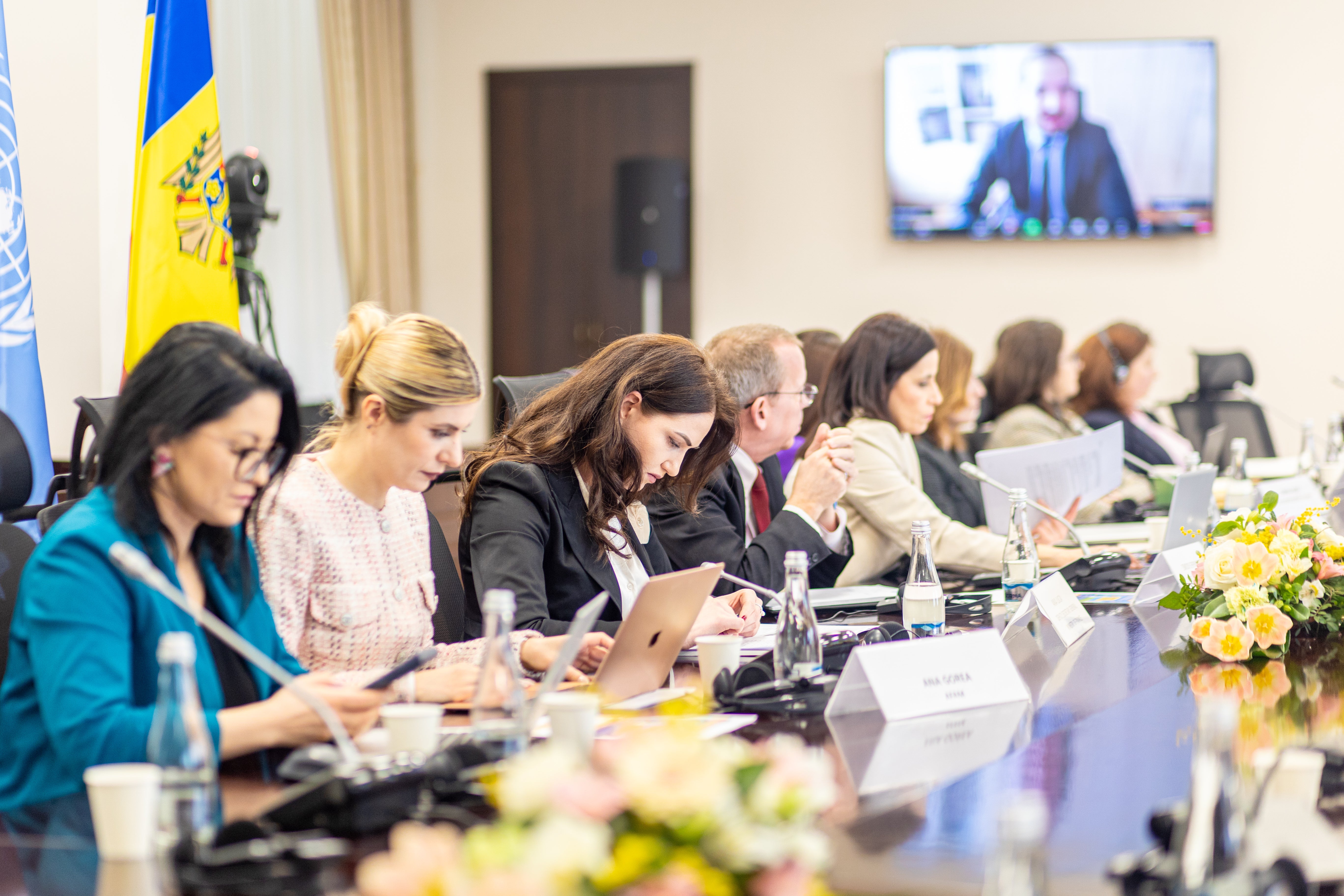Regional dialogue aims to reduce women’s poverty and advance gender equality in Armenia, Georgia, Moldova and Ukraine
Date:

The UN Women Regional Office for Europe and Central Asia recently concluded sub-regional multistakeholder consultations in preparation for the 68th session of the Commission on the Status of Women (CSW68). Scheduled from March 11 to 22, 2024, the CSW68 focuses on the priority theme “Accelerating the achievement of gender equality and the empowerment of all women and girls by addressing poverty and strengthening institutions and financing with a gender perspective.”
On February 20, 2024, more than 120 representatives from the ministries, civil society, academia and private sector in Armenia, Georgia, Moldova, and Ukraine came together to discuss the diverse challenges and opportunities crucial to advancing gender equality in the region. Hosted by the Government of the Republic of Moldova in partnership with the UN Women Regional Office for Europe and Central Asia, the consultation aimed to foster an exchange of ideas among stakeholders.
Marina Morozova, Deputy Head of the Committee on Social Protection, Health and Family Affairs, Parliament of the Republic of Moldova, emphasized the importance of bringing all stakeholders together to share experience and successes in advancing the gender agenda, and stated:“In recent years, Moldova has made significant strides in promoting gender equality, focusing on the economic empowerment of women and implementing family-friendly policies.”
Elisa Fernandez Saenz, Regional Director a.i. for UN Women Europe and Central Asia, highlighted that the countries’ presence signifies an important stride towards advancing women’s rights in the region and beyond: “In times of complex crises, it's crucial to address the gendered dimension of wars and conflicts, including their impacts on women and girls' wellbeing and access to social protection."
The event began with an evidence-based examination of gender and poverty in Armenia, Georgia, Moldova and Ukraine. It highlighted challenges in obtaining a comprehensive picture due to the lack of gender-sensitive poverty definitions and measurements. Additionally, the consultation mapped challenges and opportunities in accelerating women's empowerment and reducing women’s poverty, focusing on the care economy, unpaid care work, and social protection and labor force issues.
In his keynote speech, Alexei Buzu, Minister of Labour and Social Protection of the Republic of Moldova, underscored the urgency of commitment to creating a country where women thrive free from poverty and gender inequality: “If we aim to achieve breakthrough progress in gender equality, we cannot afford to wait any longer. It all starts with political willingness. As a minister, I believe Moldova has made the decision to become a trailblazing country in terms of gender equality.”
Ruben Sargsyan, Deputy Minister, Ministry of Labour and Social Affairs, Armenia, echoed the commitment to gender equality, saying “building upon our constitution and international commitments, we are steadfastly moving towards achieving our goals for gender equality. As a democratic country, it is our responsibility to take every possible measure to reduce the gender pay gap.”
The consultation also and investing in women and girls by mainstreaming gender in financing, investment schemes and humanitarian assistance, with representatives from all countries presenting solutions and commitments in these areas.
Natia Gulua, Head of Budgetary Department, Ministry of Finance, Georgia, highlighted the importance of a comprehensive approach to public finance management, including gender budgeting to support decision-makers in analyzing policy areas, including gender equality: “We are committed to working towards supporting the full integration of gender budgeting into the public finance management system.”
Dariia Andriunina, Head of the Division on Labour Migration Affairs of the Department of Labour and Employment, Ministry of Economy of Ukraine, discussed Ukraine’s national strategy to close the gender pay gap by 2030, emphasizing that “one of the initiatives is active employment programs aimed at engaging women in the labor market, entrepreneurship, and education.”
Following the consultation, a document summarizing the key discussions and recommendations was prepared to inform the subregion's contribution and participation in CSW68.
In February 2024, the UN Women Regional Office for Europe and Central Asia facilitated three sub-regional multistakeholder consultations covering the Western Balkans and Türkiye, Central Asia, and Armenia, Georgia, Moldova, and Ukraine. The consultations build upon the preceding civil society consultations in Europe and Central Asia, as well as youth and adolescents consultations held in January 2024 and December 2023, respectively.